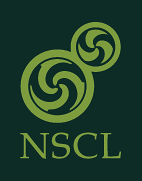FRIB announces first PAC-recommended experiments
The FRIB Program Advisory Committee (PAC) has peer-reviewed the first set of science proposals for experiments that will be conducted after FRIB commences user operation in early 2022.
The PAC-recommended experiments align with national science priorities and span the four FRIB science areas: properties of rare isotopes; nuclear astrophysics; fundamental interactions; and applications for society, including in homeland security.
Additionally, they will utilize the full spectrum of FRIB’s capabilities: fast, stopped, and reaccelerated rare-isotope beams, use of all FRIB experimental areas offered in the first PAC period, as well as all major FRIB instruments. They comprise exciting new research that was not possible prior to the completion of FRIB.
Given the high demand for FRIB about 30% of the requested beam time was recommended. By the numbers, the PAC-recommended experiments following peer review represent (compared to the request):
- 34 (out of 82 requested) experiments
- 3,108 hours (out of 9,784 hours) beam-on-target hours
- 4,122 facility-use hours
- 401 (out of 597) individuals
- 25 (out of 30) countries represented
- 24 U.S. states
- 88 institutions
- 15 out of 17 National Academies benchmarks for FRIB
The full list of the PAC-recommended experiments is available here.
“We received and reviewed a large number of outstanding proposals for experiments at FRIB. Limiting the selection to only a few to be recommended for beam time was very difficult,” said Ani Aprahamian, PAC chairperson, from the University of Notre Dame. “I recognize, appreciate, and am grateful for the outstanding dedication of the PAC members in making the best selection we could.”
The PAC is a group of international experts that includes world-leading scientists who are highly regarded in the nuclear science community. Members of the first FRIB PAC (PAC1) met 6, 12, and 13 August to peer-review each proposal in detail. The committee considered proposals based on scientific merit, consistent with U.S. Department of Energy Office of Science (DOE-SC) policy for user facilities. Observers from the DOE-SC Office of Nuclear Physics and the chair of the FRIB Users Organization also attended the meeting. Based on its evaluation, PAC made recommendations for allocation of beam to the FRIB Laboratory Director.
FRIB is a U.S. Department of Energy Office of Science (DOE-SC) user facility, open to all interested researchers. Beam time for non-proprietary experiments is granted based on a merit review of proposals. There is no charge for users who are doing non-proprietary work, with the expectation that results are published. PAC-approved experiments are valid for a two-year period.
Supporting the mission of the Office of Nuclear Physics in the U.S. Department of Energy Office of Science (DOE-SC), Michigan State University (MSU) establishes and operates FRIB as a DOE-SC user facility. FRIB is funded by the DOE-SC, MSU, and the State of Michigan, with user facility operation supported by the DOE-SC Office of Nuclear Physics.
The U.S. Department of Energy Office of Science is the single largest supporter of basic research in the physical sciences in the United States and is working to address some of today’s most pressing challenges. For more information, visit energy.gov/science.



